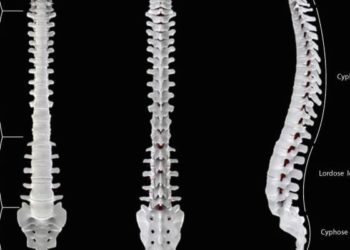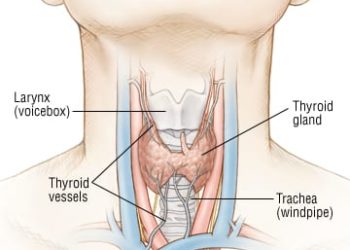[Researcher Comment] Dietary salt intake associated with greater consumption of sugar-sweetened beverages in children
Image: PD/Magnified Salt Crystal
Study author, Carley A. Grimes, BNutrDiet (Hons), talks to 2 Minute Medicine: Centre for Physical Activity and Nutrition Research, School of Exercise and Nutrition Sciences, Deakin University, Burwood, Australia
“Australian children consume too much salt. Our findings suggest that if the amount of salt Australian children consumed was reduced to comply with dietary recommendations, this would be associated with an 85 gram per day reduction in sugary beverages, which is equivalent to approximately 30 calories less per day. In combination with other obesity prevention efforts, this reduction in calorie intake may help to prevent the trajectory of excess weight gain being observed in children.”
Key study points:
- In Australian children who consumed sugar-sweetened beverages (SSBs), dietary salt intake was associated with greater consumption of SSBs, which also corresponded to greater obesity risk in the same population.
- Older children and children of low socioeconomic status were more likely to drink SSBs.
Primer: Obesity is a worldwide public health problem, spurring research on environmental, behavioral, and genetic factors that might increase risk of obesity. Efforts have particularly concentrated on child and adolescent populations, as childhood obesity has been linked to both short- and long-term health consequences such as heart disease, stroke, diabetes, and certain cancers (1). While this epidemic has been particularly well-publicized in the US, where over a third of children and adolescents were overweight or obese in 2008, less dramatic but still alarming results have been recorded in other developed countries such as Australia, where a quarter of children and adolescents were estimated to be overweight or obese in 2005 (2).
In response to a growing body of research linking SSB consumption to weight gain and higher obesity rates (3), public health researchers and policymakers have suggested interventions intended to curb SSB consumption that have yielded mixed results. In September, the New York City Board of Health voted to ban the sale of large SSBs, such as sodas, as part of a citywide effort to reduce obesity (4). Conversely, in November, voters in two California cities with particularly high obesity rates rejected a proposed “soda tax” (5).
While the SSB-obesity relationship has been well characterized to inspire policy, the effect of salt on SSB consumption and obesity is less clear. One observational study conducted in the United Kingdom showed a positive association between salt intake, fluid consumption, and SSB consumption, leading the authors to suggest that salt intake might be a contributing factor to child obesity (6).
The present study examined the relationships between dietary salt, fluid, and SSB intake and weight status in Australian children ages 2-16
Background reading:
- CDC – Childhood obesity facts.
- Future prevalence of overweight and obesity in Australian children and adolescents, 2005-2025.
- Intake of sugar-sweetened beverages and weight gain: a systematic review.
- New York Times – Health panel approves restriction on sale of large sugary drinks.
- Voters resoundingly reject Richmond ‘soda’ tax.
- Salt intake is related to soft drink consumption and adolescents: a link to obesity?.
This [secondary data analysis] study: used cross-sectional data of 4,283 children in a 2007 Australian National Children’s Nutrition and Physical Activity Survey.
Among the 62% identifying as SSB drinkers, increased salt intake correlated with increased fluid intake (r=.42, p<0.001) and SSB consumption (r=.35, p<0.001). Children who consumed more than a serving of SSB per day were 34% more likely to be overweight or obese relative to those consuming less than a serving per day. As age increased, children were increasingly more likely to consume SSBs [32% increase in SSB drinkers from the youngest group (2-3 years old) to the oldest group (14-16 years old), p<0.001], as well as more likely to consume greater amounts of SSBs (173% increase in grams/day from the youngest to the oldest age group, p<0.001). Children of low socioeconomic status, as approximated by parental education level, were also more likely to consume SSBs (p<0.001).
In sum: Dietary salt intake is associated with greater SSB consumption in Australian children who consume SSBs, and greater SSB consumption is associated with greater obesity risk. While there is currently no established link between dietary salt intake and obesity, as there is between SSBs and obesity, these concurrent findings suggest that public health policies intended to address obesity should consider including both salt and SSB reduction strategies. These results also suggest that policies should be age-specific, with particular attention paid to older children of low socioeconomic status, who may lack access to affordable and healthy foods and drinks. These findings corroborate the results of the United Kingdom’s nationwide study, suggesting that they may be generalizable beyond Australia and the UK and warrant inspection by public health officials in other countries dealing with obesity epidemics.
One limitation of the study was the use of parental education level as a proxy for socioeconomic status; it is possible that education, rather than familial wealth, is actually associated with higher SSB consumption and thus might require different kinds of interventions.
Click to read the study in Pediatrics
By [CH] and [LH]
More from this author: Clinically integrated e-learning course improves evidence-based practice in ObGyn trainees in low- and middle-income countries, Patients who utilize online health services make greater use of in-person services, Screening mammography linked to overdiagnosis; may have lesser impact on mortality than thought
© 2012 2minutemedicine.com. All rights reserved. No works may be reproduced without written consent from 2minutemedicine.com. Disclaimer: We present factual information directly from peer reviewed medical journals. No post should be construed as medical advice and is not intended as such by the authors or by 2minutemedicine.com. PLEASE SEE A HEALTHCARE PROVIDER IN YOUR AREA IF YOU SEEK MEDICAL ADVICE OF ANY SORT.






